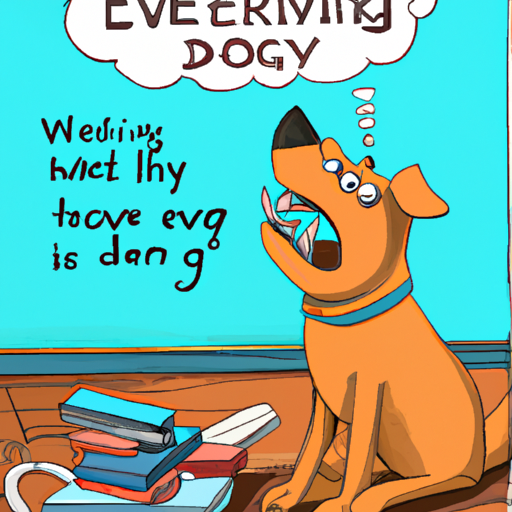As a dog owner, you’ve probably asked yourself, “Why do dogs chew on everything?”. From shoes to furniture, nothing seems to be safe from your furry friend’s relentless gnawing.
While it might be perplexing (not to mention frustrating), it’s important to understand that dogs chew on items for a variety of reasons. It’s not merely a destructive habit or a sign of a naughty dog. It is often a part of their natural behavior or a response to certain situations.
Table of Contents
- Understanding a Dog’s Chewing Behavior
- Why Do Puppies Chew More Than Adult Dogs?
- Reasons Dogs Chew on Everything
- How to Discourage Destructive Chewing
- Frequently Asked Questions
Key Takeaways
– Chewing is a natural behavior for dogs, and it can serve several functions like aiding in oral health and stress reduction.
– Puppies chew more than adult dogs due to teething.
– Dogs chew on everything for various reasons such as boredom, anxiety, hunger, or lack of training.
– You can discourage destructive chewing with redirection, providing chew toys, and ensuring your dog gets enough physical and mental stimulation.
Understanding a Dog’s Chewing Behavior
Chewing is a natural and necessary behavior for dogs. It’s not just a way for them to explore the world around them, but it also plays a crucial role in their oral health. Chewing helps keep their teeth clean and jaws strong.
According to American Kennel Club, dogs also chew to alleviate feelings of boredom or anxiety, or simply because they find it fun and rewarding. So while it might be a little exasperating finding your favorite pair of shoes in a gnawed mess, remember that your dog isn’t doing it out of spite or malice.
Why Do Puppies Chew More Than Adult Dogs?
If you’ve ever raised a puppy, you’ll know that they seem to chew more than their adult counterparts. This is primarily because they’re teething.
Much like human babies, puppies go through a teething period when their baby teeth fall out and their adult teeth come in. This process can be uncomfortable and even painful, leading them to chew on things to relieve the discomfort.
Reasons Dogs Chew on Everything
While chewing is a normal behavior, excessive chewing on the wrong items can be a problem. Here are some common reasons why dogs chew on everything:
- Boredom: Dogs, especially active breeds, need regular exercise. If they’re not getting enough, they may resort to chewing as a way to burn off energy.
- Anxiety: Some dogs chew on items when they’re anxious or stressed. This is often a symptom of separation anxiety.
- Hunger: Dogs on calorie-restricted diets may chew more than dogs who aren’t. They do this in an attempt to find additional sources of nutrition.
- Lack of training: Some dogs simply don’t understand that chewing on certain items is not acceptable behavior. This is where proper training comes in.
How to Discourage Destructive Chewing
While it’s important to understand that chewing is a natural behavior for dogs, it doesn’t mean you have to surrender your belongings to your dog’s jaws.
Here are some steps you can take to discourage destructive chewing:
- Provide Chew Toys: Give your dog plenty of chew toys to keep them occupied. OneTopDog has a great selection of dog toys that can help satisfy your dog’s urge to chew.
- Redirect: When you catch your dog chewing on something they shouldn’t, redirect their attention to a chew toy.
- Exercise: Ensure your dog is getting enough physical and mental exercise. A tired dog is a happy dog! Check out these fun exercise ideas from OneTopDog.
- Training: Teach your dog the difference between their toys and your belongings. Training tips can be found here.
- Dog-Proof Your Home: Keep items you don’t want your dog to chew out of their reach.
Frequently Asked Questions
1. Why do dogs chew on furniture?
Dogs may chew on furniture for several reasons such as teething, boredom, anxiety, or lack of proper chew toys.
2. How can I stop my dog from chewing on everything?
You can discourage destructive chewing by providing chew toys, ensuring your dog gets enough exercise, and using training techniques to teach them what is and isn’t acceptable to chew on.
3. Is chewing a sign of a health problem in dogs?
While chewing is usually a normal behavior, excessive chewing or chewing on non-food items (pica) can be a sign of underlying health issues. If your dog’s chewing behavior changes suddenly or becomes a concern, it’s best to consult with a vet.
In the end, understanding why dogs chew can help you manage this behavior effectively. Remember, patience and consistency are key when dealing with a chewing pooch. With time and appropriate training, you can guide your dog towards more acceptable chewing habits.



